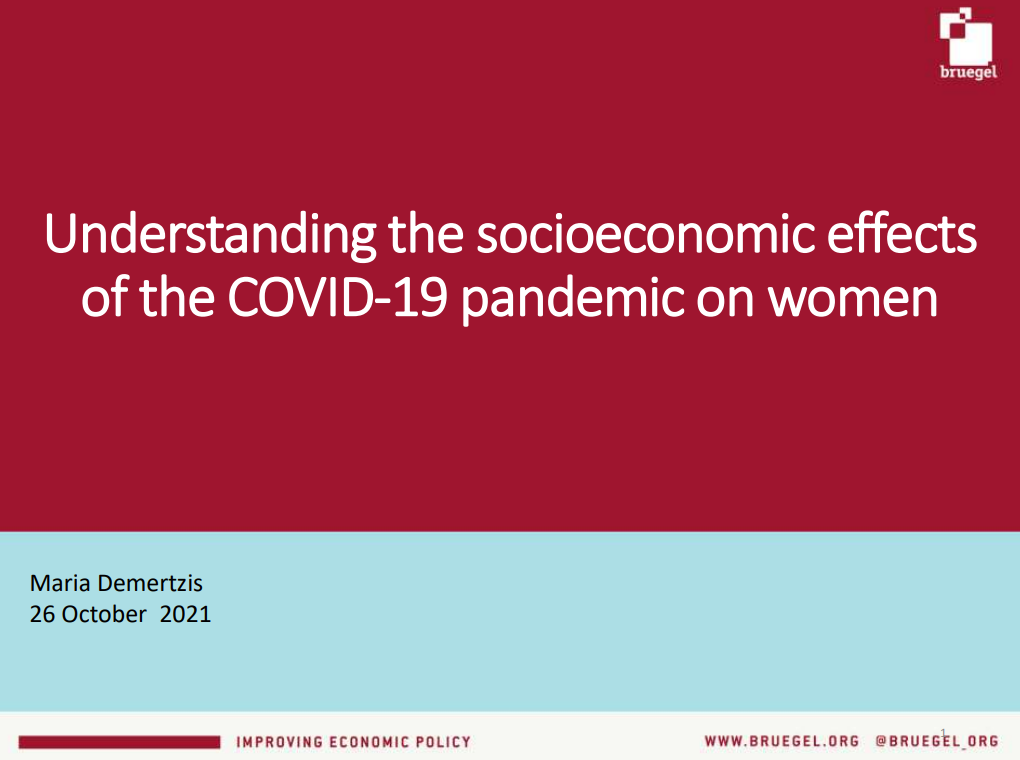Blog Post
Interactive map: Europe’s social polarisation and the generational struggle
According to the latest Eurobarometer survey on the social impact of the crisis, 80% of respondents believe that poverty has increased in their country over the past 12 months.
According to the latest Eurobarometer survey on the social impact of the crisis, 80% of respondents believe that poverty has increased in their country over the past 12 months. Over 30% of respondents in Greece, Latvia, Lithuania, Bulgaria, Romania and Hungary reported that their household ran out of money to pay for ordinary bills, food and other daily consumer items at some point during the previous 12 months. These alarming numbers are reflecting the perception of European citizens. But what do indicators measuring different dimensions of poverty and inequality actually show?
While Bulgaria has the highest rate (44.1%), in Luxembourg only 1.3% of people are severely affected by a lack of resources
The best publicly available indicator to assess poverty is the ”Severe Material Deprivation Rate” (SMDR). It is an absolute measure of poverty and represents the proportion of people who cannot afford at least four out of nine basic needs, like utilities, regular hot meals or heating to keep the home adequately warm. As you can see in the interactive map below, there is a strong dispersion across Europe. While Bulgaria has the highest rate (44.1%), in Luxembourg only 1.3% of people are severely affected by a lack of resources. The average rate in EU27 countries increased from 9% percent in 2007 to 9.9% in 2012. Even though this increase does not seem to be as dramatic as the survey implies, it is worth highlighting that a share of almost 10% is unacceptable and against the objective of promoting the well-being of EU citizens.
Click on one variable on the right to show the corresponding map. Hovering a country with the mouse will display the underlying data. The color scale changes according to the selected map.
Note: 2012 values, except, unemployment where the third quarter of 2013 is reported. NEET measures the share of unemployed young people in the age group 15-24 which are not in any employment, education or training as a percentage of total population in the respective age group.
Source: Eurostat
There were opposite developments for young and old people in the EU: the SMDR stood at 11.7% for those under 18 at the end of 2012, while the rate for the elderly (over 65) reached 7.5%. The evolution of these rates since 2007 is divergent: Between 2007 and 2012, in 20 out of 28 EU countries the elderly SMDR declined on average by 4.5 percentage points (pp). At the same time, however, in 16 out of 28 countries the children SMDR increased on average by 4.4 pp. Therefore, a generational divide is emerging: while the fall in severely materially deprived elderly people is a welcomed development, the adverse development for children is worrying.
Looking at the unemployment rate, we observe an increase in all EU countries in the period 2007–2012 with the exception of Germany, while the rate remained practically unchanged in Austria, Malta, Finland and Poland. The EU28 average unemployment rate stood at 7.2 % of active population in 2007. By the third quarter of 2013, this rate had increased to 10.9%. The countries with the lowest unemployment rates are Austria, Germany and Luxembourg, as opposed to Greece, Spain, Croatia, Cyprus and Portugal, where the rate is very high. Overall we note that there was an increase in the South-North divide in terms of unemployment, which has reached unacceptably high levels in several south European countries and leads to more polarisation across Europe.
Directly related to this indicator is the share of people living in jobless households, which has increased significantly throughout the crisis. The situation is especially alarming in Ireland, where every fifth child lived in 2012 in a household where no one worked. The share of such children was also higher than 15 % in Bulgaria, the UK and Hungary. Besides, the share of young people not in employment and not in any education and training (NEET) more than doubled in seven countries. The reality for young people aged between 15 and 24 years is worst in Greece, Spain and Croatia.
We observe the highest levels of inequality in 2012 in Latvia, Spain, Greece and Portugal, while the lowest rates are reported in Slovenia, Czech Republic and Sweden
Using the Gini coefficient as an indicator for inequality, we observe the highest levels of inequality in 2012 in Latvia, Spain, Greece and Portugal, while the lowest rates are reported in Slovenia, Czech Republic and Sweden. As Zsolt Darvas and Guntram Wolff outline in their Policy Brief published today, inequality in most advanced economies has been rising since about 1980 and could have been a reason for the pre-crisis increase in household debt and the consequent consumption squeeze during the crisis.
Therefore, developments of various social indicators show a gloomy picture. Social pain has already undermined the citizens’ trust in the EU and their own governments. This could devitalize the acceptability of painful structural reforms and fiscal consolidation measures and, in turn, diminish the reform momentum or even lead to political instability
See also policy brief ‘Europe’s social problem and its implications for economic growth‘
Republishing and referencing
Bruegel considers itself a public good and takes no institutional standpoint. Anyone is free to republish and/or quote this post without prior consent. Please provide a full reference, clearly stating Bruegel and the relevant author as the source, and include a prominent hyperlink to the original post.














